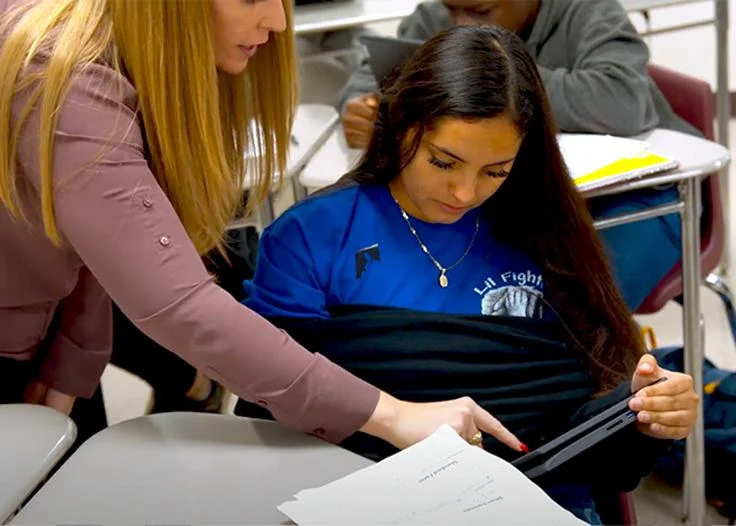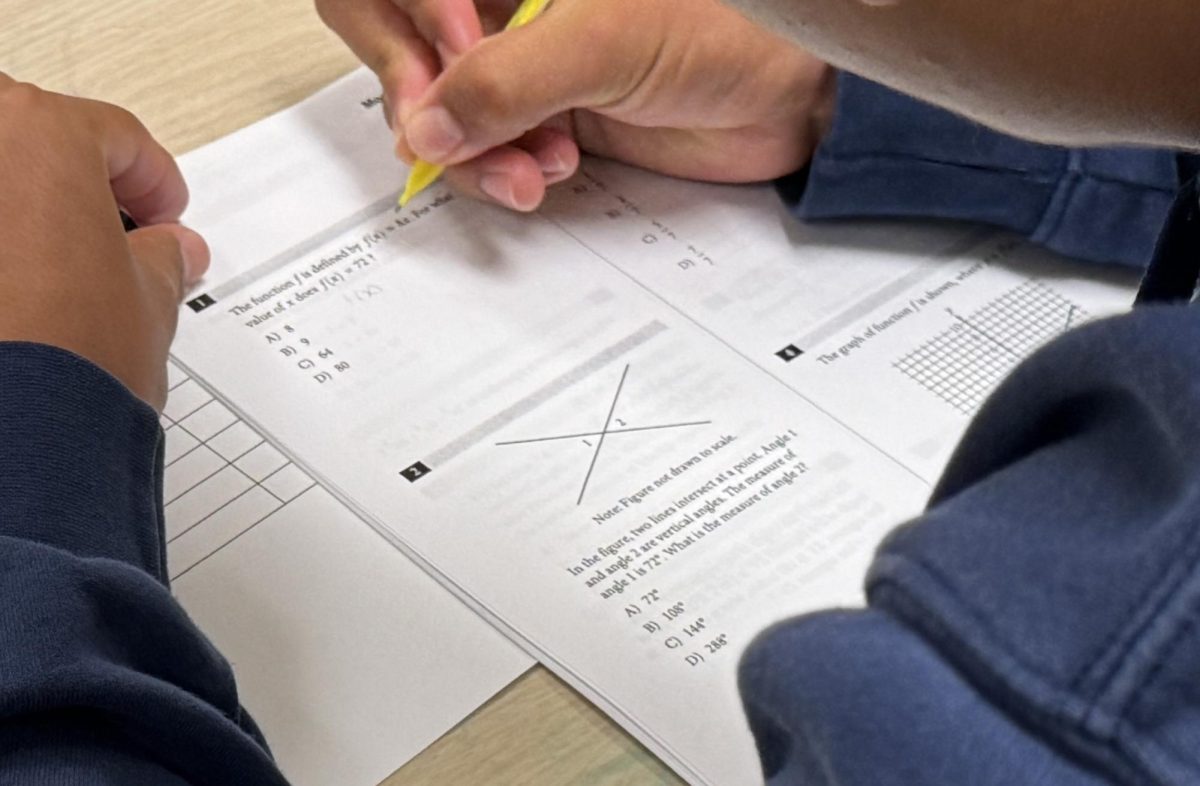Stressed. Wary. Confused. These feelings are experienced by students and teachers as these last – stressful – weeks of school come to a screeching halt.
Four straight-A freshmen and an English teacher of 20+ years– Dr. Goen, Arwa Itani, Hayden Long, Rei Ngo and Liesl Blair– recount their presentiment with testing. With minor exposure to testing procedures in high school, the students made clear how they felt on campus. For teachers, they speak on their behalf how testing impacts students school wide.
“For students, it’s very beat-down, mentally and physically,” said English I teacher Dr. Goen, “They are just staring at their screen for four hours straight. And it is a lot of stress for them since it is a graduation requirement.”
Met with high expectations, these students stress about doing good on the tests. High standards set students with strict tension between a balance of school work and mental health. The rubicon between the two holds a thin line.
“Stressful. Definitely stressful,” freshman Liesl Blair said, “I’m exhausted- you know- I’m constantly doing something. Especially with the bell schedule, it’s just crazy.”
Confused and only half-aware, students aren’t prepared for their tests. Pragmatic preparation, such as tutorials and study-seshes, allows students to prepare and calm down on test day. It’s an eye-opening opportunity students take to catch up in a subject they are not well-accommodated to.
“It’s imperative to prepare,” freshman Rei Ngo said, “You get to do practice questions if you’re a kinesthetic learner or do hands-on practice, which helps a lot. You’ll know the material and have a better chance at knowing what’s on the test.”
Despite its efficacious benefits, practice can only go so far. Even with specialized help, test-takers can be left with futile strategies if not used pragmatically. How the student executes the plan is the daunting truth.
“Studying can be beneficial if students know how to do it right,” Dr. Goen said, “the thing about the English test is about thinking through and making an educated guess. I think they need to get our key words in mind– like mood or tone.”
Alongside its effect on behavior and mood, testing days also put a stop on the whole building. Activities are deferred and important club meetings get postponed.
“If you finish early, or are not testing that day, you have a really long time or silence or just doing nothing. That gets really mundane really quick,” Ngo said.
Bombarded with other work, students face challenges with balancing school work and district tests. Hayden Long, despite being a student from Sachse, faces this same conflict. Relating to other people on campus, the on-going pressure of juggling assignments, tutorials, and exams is a lot for her to handle.
“Knowing that I’m going to be working nonstop, these testing days are stressful considering the fact that teachers have been talking about it for the past seven months and are holding such high standards for each student,” Long said. “They’re my least favorite due to how quick teachers throw work at students and it tends to become a spiral.”












